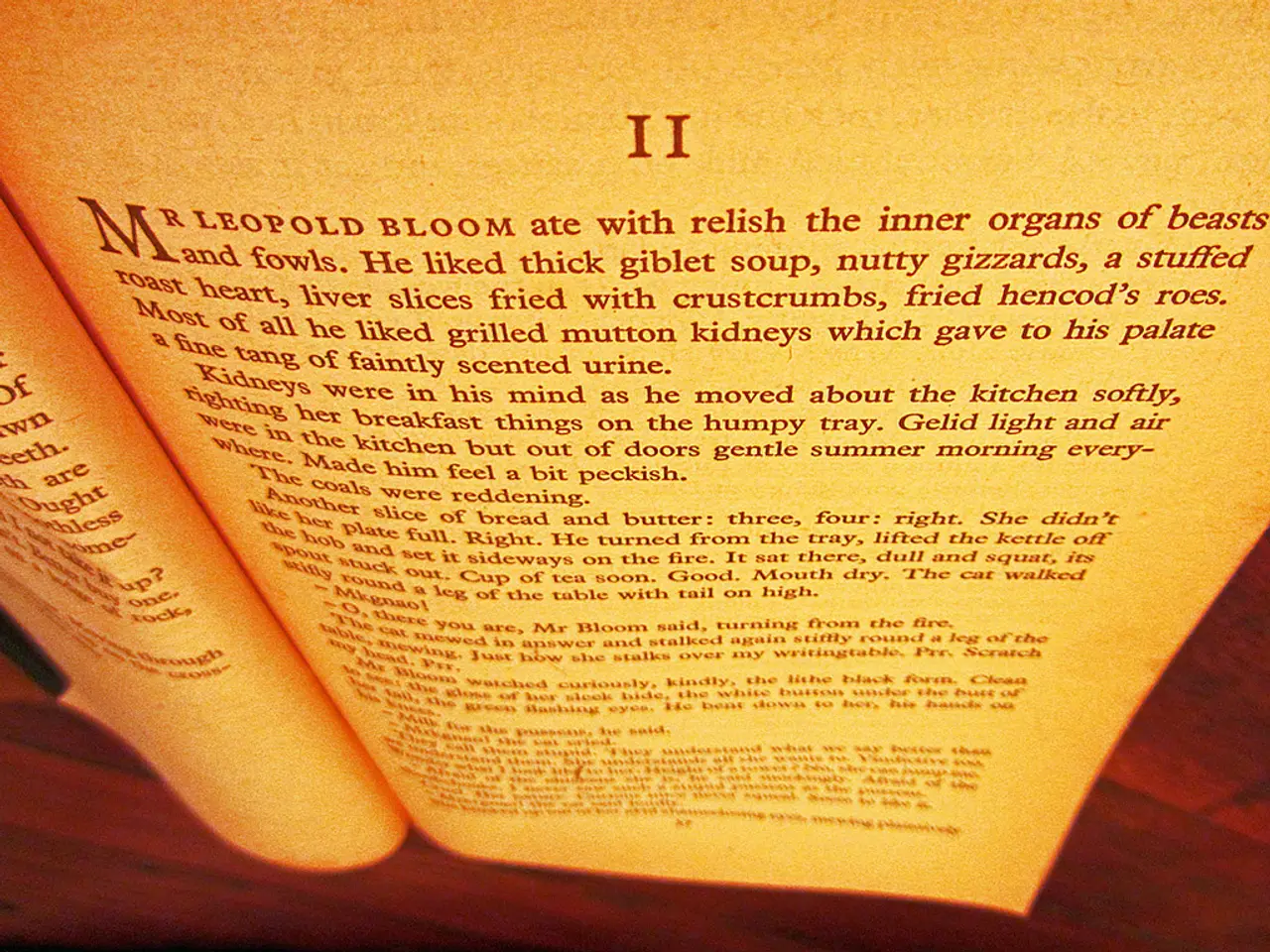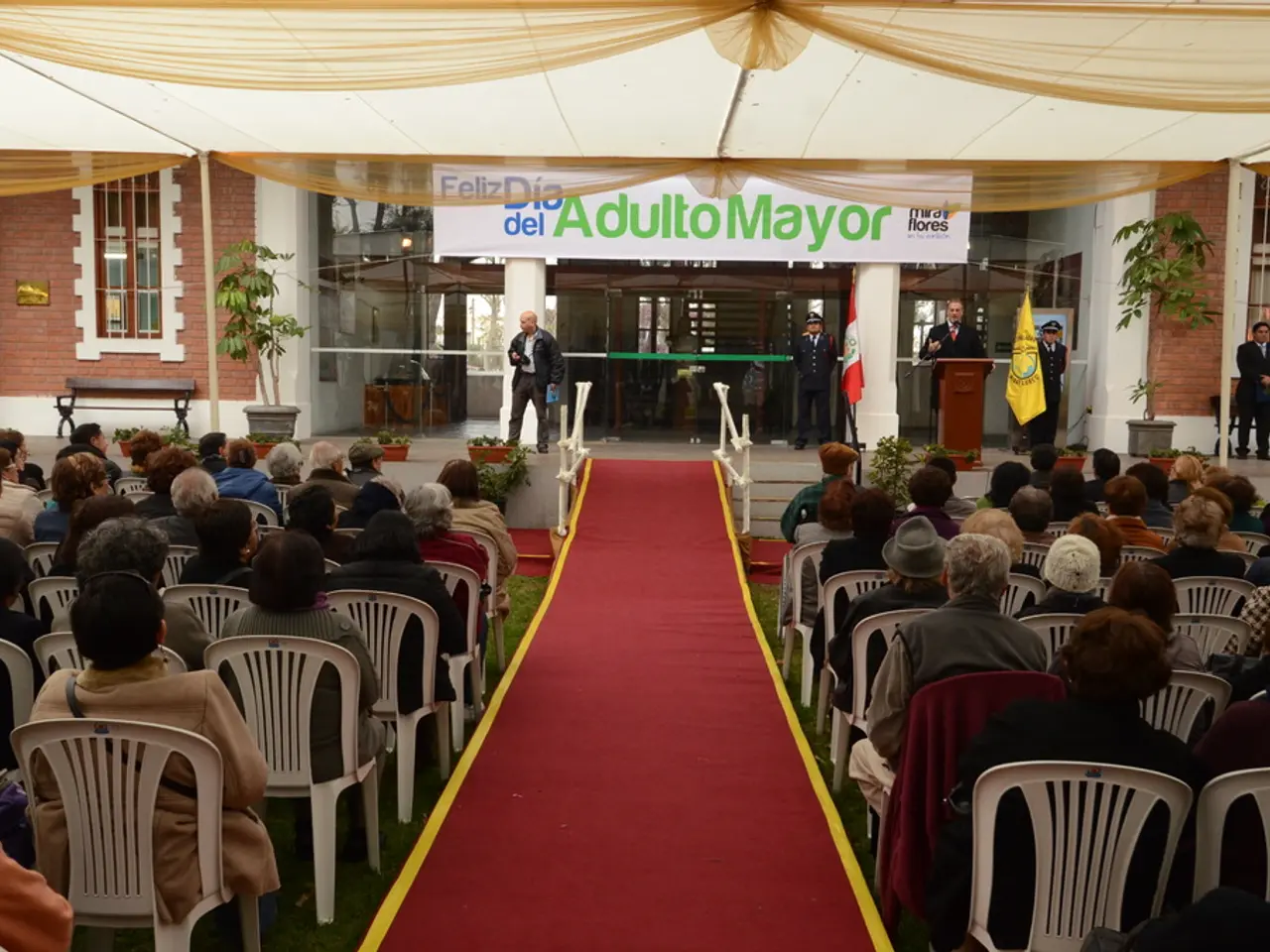Commission has yet to receive a response from Commission.
In a recent turn of events, plagiarism allegations against Frauke Brosius-Gersdorf, the Social Democratic Party (SPD)'s nominee for the Federal Constitutional Court in Germany, have surfaced. However, these claims appear to be unsubstantiated, as a short assessment commissioned by Brosius-Gersdorf and her husband found the allegations against her to be unfounded and lacking substance.
The controversy emerged last Friday, just before the planned judicial election in the Bundestag. The allegations involve parallels between Brosius-Gersdorf's doctoral thesis and her husband's habilitation thesis, as reported by Austrian plagiarism hunter Stefan Weber.
The law firm Quaas and Partners, which conducted the assessment, considered similar footnotes, text passages, and similarities in headings between Brosius-Gersdorf's dissertation and her husband's habilitation thesis. The firm found that a plagiarism accusation is not applicable due to the few and insignificant spots of similarity between the two theses. They stated that the partly similar passages in the texts may indicate a mental exchange but not plagiarism.
The lawyers Michael Quaas and Peter Sieben of the law firm provided an accompanying letter explaining the findings of the short assessment. The firm mentioned that the similarities are not significant in quantity or quality and do not affect Brosius-Gersdorf's own scientific performance.
It is important to note that this short assessment is a preliminary evaluation, and a comprehensive legal evaluation may be conducted at a later date. Brosius-Gersdorf's doctoral thesis, titled "German Federal Bank and the Principle of Democracy. A constitutional law study on the independence of the Federal Bank before and after the third stage of the European Monetary Union," was submitted to the University of Hamburg in 1997. Her husband's habilitation thesis, titled "Public Enterprises in the Tension Field Between Democracy and Efficiency Principle," was submitted to the same university, but the exact year is not specified. The firm noted that the husband's thesis was created later than Brosius-Gersdorf's doctoral thesis.
The judicial election in the Bundestag, where Brosius-Gersdorf was a candidate, ultimately failed due to the political controversy caused by the plagiarism allegations. The CDU/CSU parliamentary group invoked these allegations to postpone the vote, which led to a political controversy and interrupted the normally routine election process.
However, the postponement has triggered backlash from the SPD, the Greens, and many legal academics, who argue that the accusations were leveraged as a political tool rather than being based on verified misconduct. A group of nearly 300 legal scholars signed an open letter defending Brosius-Gersdorf's reputation and criticizing the handling of the case as influenced by ideological lobbying and defamation campaigns.
Brosius-Gersdorf herself has publicly dismissed the claims and related criticisms, emphasizing her moderate legal stance and rejecting labels such as "ultra left" that have circulated in the debate. Overall, the available information indicates no verified evidence beyond initial plagiarism suspicions has been substantiated, and the matter remains highly contested politically and academically without definitive proof against Brosius-Gersdorf.
The controversy surrounding Brosius-Gersdorf's nomination for the Federal Constitutional Court in Germany, initiated by plagiarism allegations, is currently a topic of discussion in policy-and-legislation and general-news, as it has disrupted the political landscape of the country. The allegations, regarding similarities between Brosius-Gersdorf's doctoral thesis and her husband's habilitation thesis, have been extensively debated, with different parties offering contrasting interpretations of the similarities found in the texts, ranging from plagiarism to mere mental exchanges.




